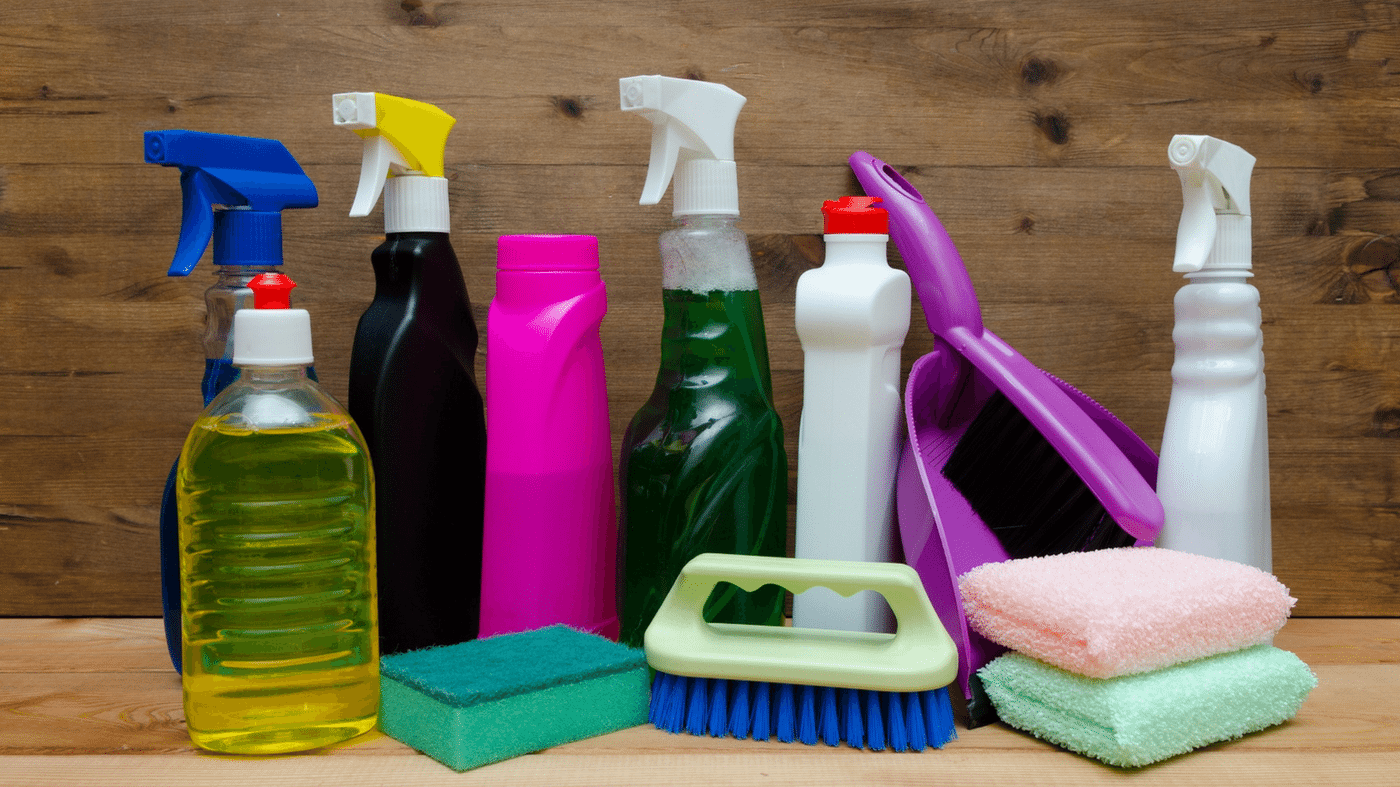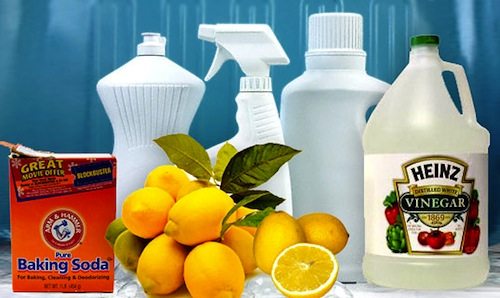April 9, 2012
Two weeks ago, a new study came out from The Silent Spring Institute. It reveals chemicals that are all around us in everyday household and personal care products.
When I heard about this study, I was tempted to shrug and just make sure I continued to do things like use natural deodorant, keep on avoiding fluoride in my toothpaste, and continue to avoid using sunscreen unless absolutely necessary.
But then I actually read the full study details about “Hormone Disruptors and Asthma-Associated Chemicals in Consumer Products”. The research is very thorough, and is the first peer-reviewed assessment of a large number of hormone disruptors and
dangerous chemicals in a variety of household products, and the first of ingredients in sunscreens.
The list in the study is shocking.
It reveals consumer products that we buy again and again and bring into our homes, our kitchens, our bathrooms, our beds, our bodies – including air fresheners, dryer sheets, shampoo, bar soap, floor cleaner, sunscreen and toothpaste.
They found plenty, even in products labeled “green”.
Here is a quick video that explains the research:
And here are the full details of the study:
Endocrine Disruptors and Asthma-Associated Chemicals in Consumer Products
But here's the deal:
This stuff is easy to avoid if you know what you're doing.
For example, let's say you get dry skin after a workout. Here's a video in which my wife Jessa shows you how to easily fix the issue without absorbing toxic chemicals into your body:
Here are 11 more items that the study found to be clean and acceptable:
1. Healthy Pet Foods Here’s the Scoop! Natural Unscented Clay Clumping Litter
2. Seventh Generation Chlorine-Free Diapers
3. Bon Ami Polishing Cleanser, No Chlorine, Perfume or Dye
4. Seventh Generation Free and Clear Dishwashing Detergent
5. Seventh Generation Free and Clear Natural Dish Liquid
6. Tom’s of Maine Natural Long-Lasting Deodorant Stick, Aluminum-Free, Unscented
7. Bean Products Pure Cotton Shower Curtain
8. Excell Home Fashions Ultimate Nylon Shower Curtain or Liner
9. Carapelli Extra Light Olive Oil
10. Magick Botanicals Fragrance Free Hairspray
11. Dr. Bronners Magic Soaps Unscented Baby-Mild Pure Castile Soap
Of course, the easiest and least expensive way to go if you want complete peace-of-mind is to just make most of this stuff yourself. It's easy to do.
So next Sunday, April 15, at 2:30PST, my Jessa and are teaching a live video webinar entitled “Your Skin Is Your Mouth”. It's part of our private Inner Circle, and you can get access by clicking here. This will be a live interactive video webinar, we'll show you all our secrets, and you'll get to ask questions as we go.
Questions, comments or feedback? Were any of the household items that you personally use listed in the study? Leave your thoughs below.



Its scary to think of how many harmful chemicals are in the every-day products you use. Recently I switched from my shampoo to a soap that is free from phthalates, sulfates, parabens, and glutens and my hair started growing back thicker and stronger. I also noticed that my skins natural oils were able to surface much easier. Thanks for sharing.
Can this be used on floors? We have wood laminate flooring, and I’d love a cleaner I knew was safe for cats and babies. I’m thinking if I mop mostly with water and some of this spray (I’m using something like a swiffer-wet mop), it shouldn’t harm anyone and get the job done, right?
Can *what* be used on floors?
Your skin toner recommends two products on the “avoid” list from the silent spring.org website: tea tree oil and lavender.
Read more at: https://bengreenfieldfitness.com/article/lifestyl…
This is Good Information ! I gonna Surely try this Out & Come Back.
Hey Ben. Love the podcast and the ‘copious’ amount of articles. Do you still have a discount code for Every Man Jack?
Not right now..
I always rely on natural cleaning products because they are harmless and effective. It helps keeping my carpets and rugs odourless and tidy. a few days ago, I consulted Mia Bell to remove obstinate stain marks, and surprisingly, he too recommended me to use homemade cleaner.
These chemicals are not good for human health.It's better to keep these things away from people.
Thanks for this! After we had our basement remodeled, I started using only natural cleaners. Chemical cleaners produce fumes that are dangerous to our health when inhaled, and it's hazardous to use in the basement because it's a closed area. Better safe than sorry, right?
I am not fond of using chemical cleaners regularly. I prefer natural cleaning products like vinegar or baking soda because I know that chemical cleaners can cause health problems.
Suprised you didn't list any of Everyman Jack's products in your list of safe products. I know you have recommended his deodorant in the past. I also started using his skin toner as a sunscreen prior to swimming which happens to have an SPF of 15. I was also going to use it the night before an Ironman to get some absorption and protection into the skin prior to racing the next day and re-applying. Your thoughts on my approach?
Well that wasn't *my* list. It was Silent Spring's list. Everyman Jack is fine. For Ironman, though, I use Scape sunscreen. Not totally "chemical free" but the only one I've found that both breathes and doesn't allow burns…
Aaaaah.
I use tea tree as an antiseptic and lavender for sore throats and colds??
That's not really a big deal…it just may be an issue if you're using tea-tree/lavender infused shampoos, gels, soaps, etc.
http://healthychild.org
is a good resource for to look at!
Thanks Dave! Hope all is well in Coeur D' Alene…
Hey Ben. Checked out the report and couldn't find the list of products (by company or name) like the 11 you listed. Checked Silent spring website too. So where can I find this information? Thanks
Your skin toner recommends two products on the "avoid" list from the silent spring.org website: tea tree oil and lavender.
That was based on this study (done as case studies on 3 boys): http://www.nejm.org/doi/full/10.1056/NEJMoa064725…
You'll notice that the boys were using shampoos, gels, etc, with the extracts. It's kind of a smoking gun issue, as the author's admit in the paper: "Other components in these products may also possess endocrine-disrupting activity that contributed to the gynecomastia, but those components were not tested because we chose to evaluate only the component that was found in all the products used by the patients (lavender oil) and a chemically similar component that was found in some of the products (tea tree oil)."